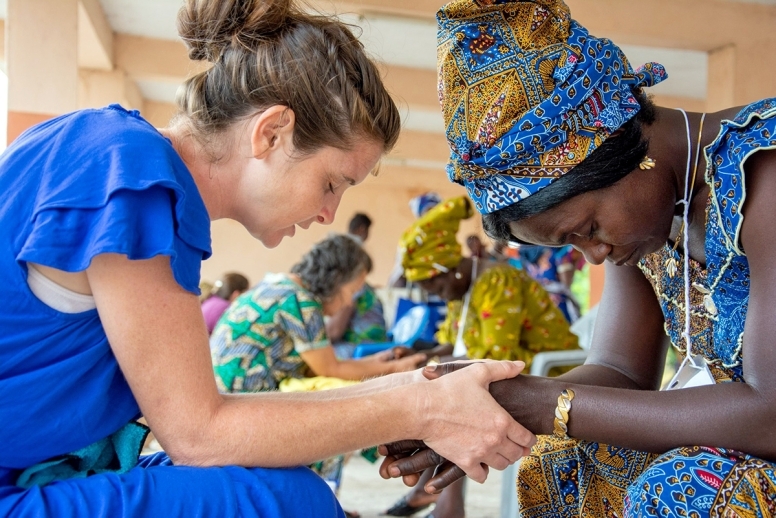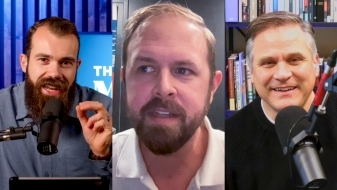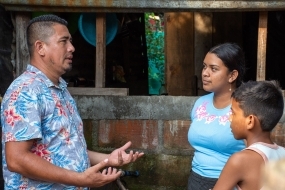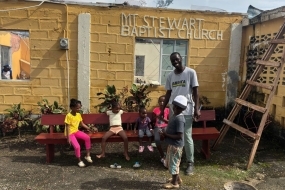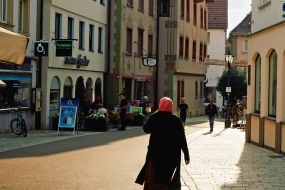After being blamed for several deaths within the clan, Melanie was forced to relocate. Her uncle moved her into a little mud hut on the side of a mountain out of fear for the family’s safety.
In the small, West African country of Togo, it is rare for an elderly woman to live alone. So, when an ABWE missionary named Jane noticed Melanie outside her hut on one of her walks, she asked a neighbor if they knew anything about her story.
The neighbor responded that Melanie had done “bad things” in the spiritual realm.
Togo is a cauldron of religious beliefs. Voodoo, notably, finds its origins in the animistic practices of West Africa. In much of the country, Islamic and Christian influences blend with ancestor and spirit worship, leaving people with a distorted view of God.
After Jane approached Melanie, the two women struck up a relationship. Melanie told the missionary that she was actually a baptized member of a church. She also told Jane the cause of her isolation, claiming that she once was possessed by demons. Melanie’s access to demons made her a witch and gave her powers over others, according to her clan. Although Melanie insisted the demons were now gone, the title “witch” remained.
Through many talks, Jane was able to share the gospel with Melanie a number of times.
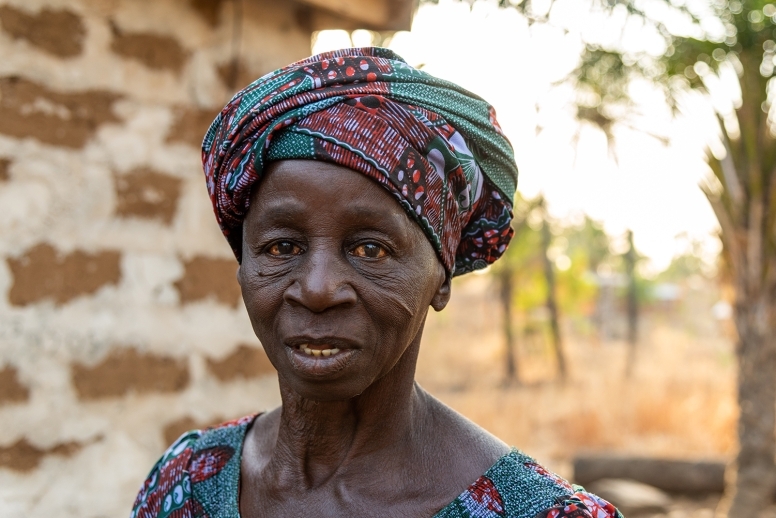
Mama Melanie’s life was dramatically changed after she met an ABWE missionary who shared the gospel with her.
But the more Melanie listened to Jane share the truth, the more she realized she had not fully grasped the gospel before. The Lord opened Melanie’s heart, and she placed her faith in Jesus.
Melanie now attends a local church, along with her uncle, and is being taught by a local pastor.
The fact that a Bible-believing church exists in the middle of Togo is no accident, even though ABWE’s ministry in Togo was a “mistake.”
At least, that is how Executive Director for Africa Ron Washer described his parents’ arrival as ABWE’s first missionaries to Togo nearly 50 years ago. Initially, Dal and Kay Washer had plans to serve in Benin. But when that door closed, they were led to Togo and never looked back.
From a divine perspective, the launch of the first ABWE Togo team was anything but an accident. More than 50 churches started as a result of well-established ministries that focus primarily on education, healthcare, and Christian literature, but also include a blind school, a radio station, and even an aquaponics farm—all centering on evangelism.
Through these ministries, tens of thousands of Togolese like Melanie hear the gospel each year, and a team of missionaries and national believers work to connect those who profess faith to these churches for further discipleship.
All told, 101 ABWE teammates currently serve together in Togo, with dozens more short-term workers joining them on the field each year.
Healing Bodies, Saving Souls
It was 1985 when as many as 2,000 people, including village chiefs and government dignitaries, attended the opening ceremony for ABWE’s newest ministry, Hôpital Baptiste Biblique (HBB).
During the event, an ABWE leader gathered missionaries into the women’s ward of the new building to remind them all of the hospital’s primary purpose: spreading the gospel of Jesus Christ.
Almost 40 years later, the now 50-bedroom hospital serves on average 18,000 patients annually, and each one has an opportunity to hear the gospel.
Some patients, like a man named Komi, come from many miles away, allowing the team to impact some of the poorest and least-reached people groups in West Africa.
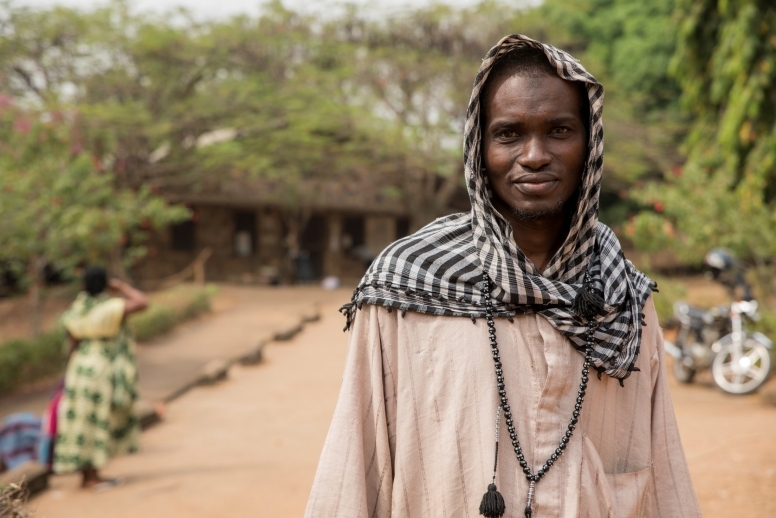
Each year, around 18,000 patients like Komi come to HBB. About 1,500 of them make professions of faith annually through the witness of the hospital staff. Some new converts go on to join or plant churches.
Komi was angry after being in the hospital for months battling a flesh-eating infection that threatened amputation. Beyond accepting physical care, he shunned those who tried to encourage him. When HBB chaplains shared the gospel each day with Komi, he constantly rejected both them and their prayers.
Several weeks passed with this same behavior before an exasperated chaplain finally gave up attempts at conversation and handed Komi a Bible to read for himself. Without television or much else to do, Komi began to read the book. Three weeks later, the once-bitter patient asked for an HBB chaplain and beamed as he exclaimed, “I understand now. I believe! Thank you for sharing this good news with me!”
Komi is not alone in his journey to faith. A staggering 1,500 HBB patients respond to Christ in faith annually through the witness of hospital workers.
A unified staff of missionaries and national partners work as a team at HBB to help heal patients and lead them to Christ. Often these new believers bring the gospel back to their families and villages.
Of the ABWE church plants around the hospital, more than 80 percent of them were started by national believers and all are currently pastored by Togolese Christians who are equipped through HBB’s auxiliary ministries like leadership training and theological education.
Germain’s Story
Germain grew up in an animistic household that worshiped idols. But when a classmate invited him to a church connected to an ABWE-planted church, Germain heard the gospel and placed his trust in Christ at the age of 16.
After earning his bachelor’s degree in English linguistics, a local pastor told Germain about a translator position at HBB. Germain worked closely with ABWE missionary Sharon Rahilly, a teacher at the nursing school who required Germain’s translation assistance.
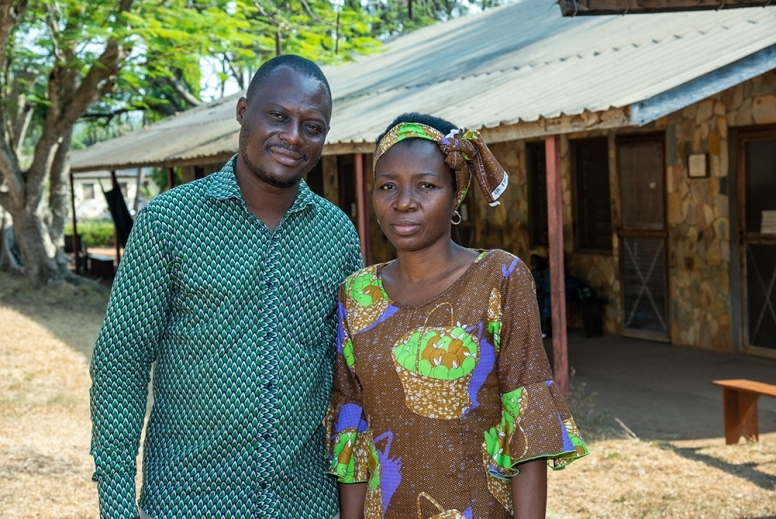
Germain Amevi Fayosseh and his wife, Ayoko, have worked a t HBB since 2001 and 2004, respectively. They have three children: Hannah, Eliane, and Theophile.
As he interacted with the students, who were primarily young believers, his role as translator expanded to mentor as well. Germain had a hunger for biblical knowledge, so God provided the needed funds for him to be sent to the US to study theology at Liberty University.
When he returned to Togo, Germain’s family was commissioned for ministry by the local church where he served as assistant pastor. He also taught at ABWE’s Bible Institute in Kpalimé, lent his skills to HBB’s literacy center, and translated for visiting missionaries.
Eventually, Germain accepted the position as HBB’s Assistant Hospital Director. But he was uncertain of how God would use his ministry gifts at the managerial level—until one conversation.
During a meeting with a government employee, God prodded Germain to share the gospel with the woman before he left her office.
Months later, Germain received some incredible news from her.
“You saved our family,” she told him. “My husband and I were going to have a divorce.” Instead of separating, she had given her life to Christ, and she and her husband started studying the Bible with a local pastor.
Her testimony is only one example of how a medical ministry like HBB extends beyond doctors and patients, infiltrating the community at large.
An Unfinished Task
Although the gospel is spreading throughout Togo, Africa still contains hundreds of people groups without access to the good news of Jesus Christ. At least three unreached peoples—the Kotokoli, Zarma, and Fulani—lie well with-in reach of ministries like HBB.
HBB is poised to become a launchpad, sending African medical missionaries into all of Africa. But this vision cannot come to fruition with HBB’s near-obsolete, worn, 36-year-old equipment and facilities.
To continue reaching deeper into Africa, the team plans to renovate, enhance, and expand the hospital along with its surgical and medical training programs. The expansion will include a center focused on training Togolese and other Africans to use medical evangelism to become highly-skilled, kingdom-minded surgeons who can also effectively share the gospel.
Of the $4.3 million needed to complete Phase 1 of the “HBB Vision Project,” only $1.3 million remains unfunded.
“The vision is to establish Togo as a springboard for missions to the rest of the continent,” said Washer. “Togo is just the beginning. Africa is the goal.”
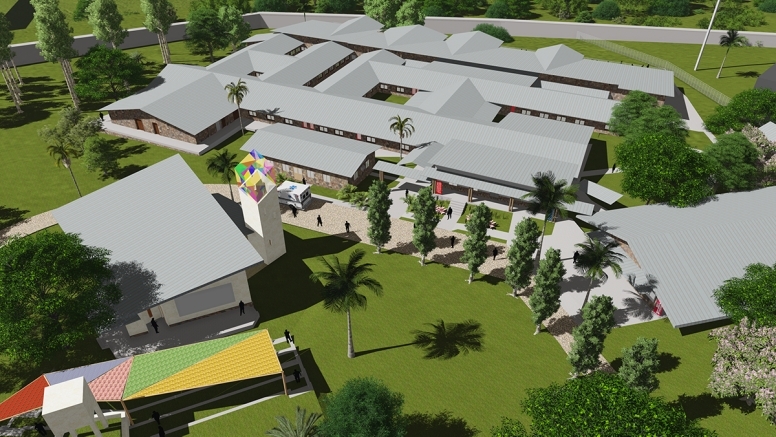
An artist’s rendering of the new hospital.
A Great Cloud of Witnesses
Without the hospital team and their ministries, people like Mama Melanie, Komi, and thousands of others may never hear the good news that will set them free.
In Komi’s case, he left the hospital with both a healed leg and a newfound faith. He was given literature and later returned for a follow-up appointment, rejoicing and thanking everyone for sharing the truth of the gospel.
Then, only a few hours later, the hospital staff received devastating news. Komi was dead, killed in a terrible car accident on his way home.
“Some people would say, ‘That’s not fair! How could God not protect him after he gave his life to him!’” said HBB medical doctor, Michael Gayle. “It is sad. And it was shocking. But as Christians we really should also be saying, ‘Hallelujah! This man was able to receive Christ before he died!’”
“This is why we are here in Togo,” Gayle continued. “To share the best medicine of all, the good news of Jesus Christ! It is life changing and will save in the end”—no matter the outcome of someone’s life on earth.
